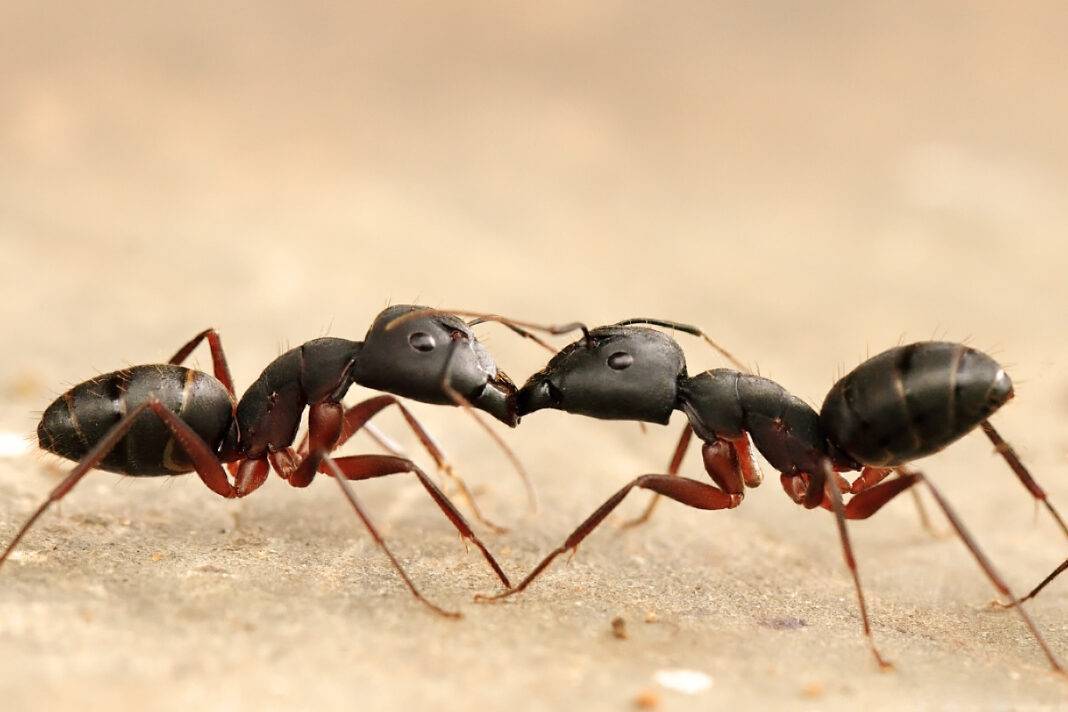Who knew the best alternative to pesticides to keep bugs off of crops would be … other bugs? A recent study says that ants, to be specific, can be even more effective than pesticides at killing pests, reducing damage to plants, and fortifying crop yields. And they don’t contaminate our food, soil, and water sources with toxic chemicals.
Ants excel at biological pest control in diversified farming systems, including agroforestry and shade-grown crops, as these have more resources and nesting sites for them. There are some ways, however, in which ants might be counterproductive in this capacity. Pests like aphids, mealybugs, and whiteflies are more prevalent where there are ants because ants protect them in order to feed on the sugary water they produce, called honeydew.
Certain management practices like providing alternative sugar sources, however, can discourage ants from protecting these pests. With an understanding of the broader ecosystem interactions, farmers can utilize ants to protect their crops.
There are a staggering one quadrillion ants around the world — comprising half of Earth’s insect biomass. Research indicates that, if done with proper consideration of the types of ants and crops, moving ant colonies to crop areas can lead to a mutually beneficial farming system for humans and our tiny friends.


